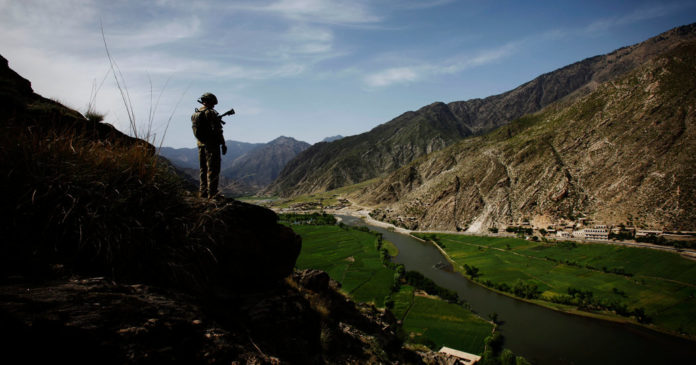KABUL, Afghanistan — The agreement reached by the United States and the Taliban on Saturday is clear in at least one way. The United States and the Taliban got something they both dearly wanted: a timeline for an American troop withdrawal and a countdown to whatever happens next.
But caught in the middle is an Afghan population that is on edge about what that last part might look like, after a deal that excluded their government and left many critical points ambiguous.
Across the country on Sunday, Afghans were grappling with whether the deal could actually be a first step toward lasting peace, or a plunge back into a chapter where extremists could again dominate society and governance, as happened during the Taliban’s rule in the late 1990s.
The country has been so scarred by violence — tens of thousands of Afghan civilians killed, a generation of women widowed, the security forces barely able to recruit enough to replace their losses — that even a vague prospect of peace is welcome. Nearly every one of a dozen Afghans interviewed on Sunday about the deal held out at least cautious hope that something good could come of it.
But then came the worry.
Particularly on edge were rights advocates who were concerned that the deal put off hard commitments about rights for women and ethnic and religious minorities to a future phase, when the Afghan government and the Taliban are to negotiate directly about how the country will be governed.
Fearing that the Taliban will have the upper hand in those talks, some wondered whether two decades of gains, even if only modest ones, would be lost.
“It is unclear how the Taliban, who fought for 18 years for their own ideology, can suddenly give up their anti-democracy and anti-women’s rights values,” said Marzia Rustami, a women’s rights activist in Kunduz Province, in northern Afghanistan. “In the current system, women have the right to education, the right to work and the right to participate in politics. We do not want to go back to what we were doing during the Taliban regime.”
Pariwash, a 12th-grade student in Kandahar City, understands little about the recent agreement. She does, however, want to stay in school, and she knows under Taliban rule, girls were barred from classrooms.
“Peace is a sweet word that touches everyone’s lives, but what kind of peace?” she said. “I am worried about my education.”
For Shaharzad Akbar, Afghanistan’s human rights chief, the Taliban have gained far more from than deal than anyone else, she said Sunday.
“The process itself was an incredible public relations opportunity for them,” Ms. Akbar said. “The reduction in violence, if it holds can provide some relief, but other than that, little is tangible now.”
Ms. Akbar added that the language was too broad and, on many levels, hard to verify, including the agreement’s assertion that the Taliban had to prevent future terrorist attacks from originating on Afghan soil. He feared that the Taliban could probably find ways around their commitment to negotiate peace with the Afghan government, as well.
But at its core, the agreement opens the possibility of peace in a country that has been at war, in some form or another, for the past 40 years.
“If we have long and permanent peace, we will be saving the nation,” said Jan Mohammad, a taxi driver in Kandahar City.
Reporting was contributed by Thomas Gibbons-Neff from Washington, Taimoor Shah from Kandahar, Afghanistan, and Mujib Mashal from Doha, Qatar.
Source : Nytimes










